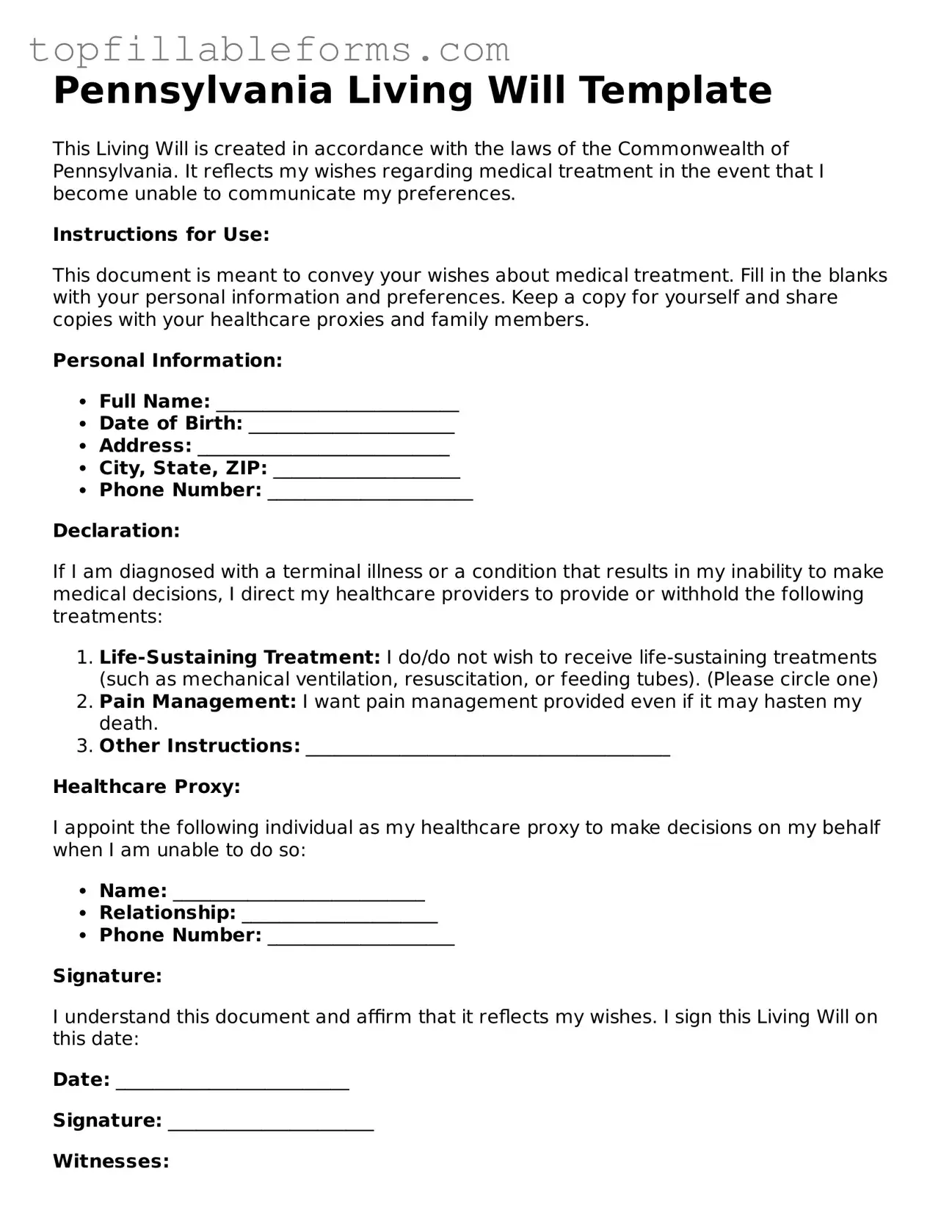Attorney-Verified Living Will Template for Pennsylvania
A Pennsylvania Living Will is a legal document that allows individuals to express their wishes regarding medical treatment in the event they become unable to communicate their preferences. This form provides guidance to healthcare providers and loved ones about the types of medical interventions one desires or does not desire at the end of life. Understanding this important tool can help ensure that your healthcare wishes are respected and honored.
Open Living Will Editor Here

Attorney-Verified Living Will Template for Pennsylvania
Open Living Will Editor Here
Finish the form now and be done
Finish your Living Will online by editing, saving, and downloading fast.
Open Living Will Editor Here
or
▼ PDF File
